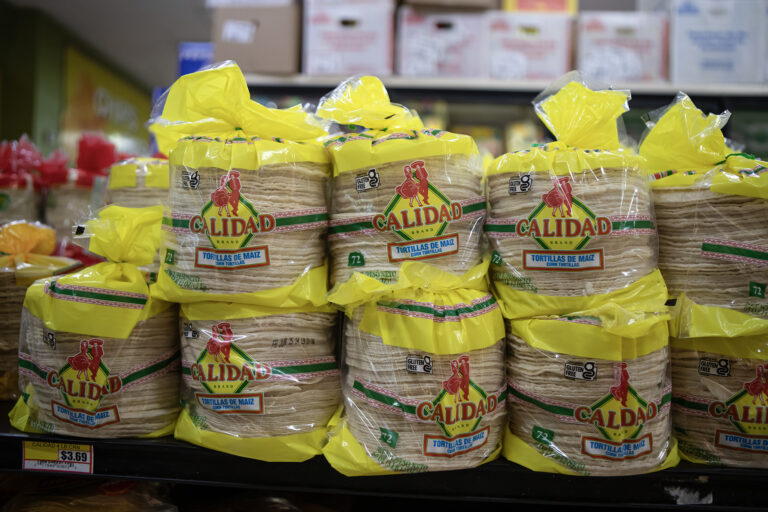In summary
Folic acid is so important to infant health that it’s required to be added to cereal and bread. A new California law ensures it’ll be in tortillas.
Lea esta historia en Español
Most tortillas and corn masa products sold in California will soon have to include an additional ingredient — one considered key during pregnancy. The goal? Increase folic acid intake among Latinas of reproductive age.
Gov. Gavin Newsom today signed legislation that directs manufacturers of corn masa to add 0.7 milligrams of folic acid to every pound of flour or 0.4 milligrams to every pound of wet masa. These products will have to declare the addition in their nutrition labels. The law goes into effect in 2026.
Folic acid promotes healthy cell growth and has long been used to prevent serious birth defects. Medical and public health experts advise daily consumption during pregnancy, but also in the months before becoming pregnant. Research has shown that when taken before and in the early weeks of pregnancy, folic acid can help prevent birth defects by as much as 70%.
Women may not start taking prenatal vitamins until weeks or months into their pregnancy. Adding folic acid to food ensures they consume it in the first few weeks of pregnancy, which are key in the development of a baby’s brain and spinal cord.
The federal government already requires certain food that is considered staples in an American diet to be fortified with folic acid. These include enriched breads, cereals and pasta. The federal government allows folic acid to be added to corn masa, but doesn’t require it.
The new law “addresses a health equity issue, and California is once again leading the nation in protecting mothers and infants from preterm birth defects,” said Assemblymember Joaquin Arambula, the Fresno Democrat and physician, who authored the law.
“I’m grateful that this legislation will provide a culturally appropriate way to address disparities to help prevent birth defects across our state. We expect to see the rest of our nation pay attention and follow suit,” he said.
Arambula pointed to state public health data that shows Latinas are less likely to take folic acid in the early weeks of pregnancy or before becoming pregnant when compared to other racial or ethnic groups. This puts them at higher risk of having children born with neural tube defects, such as spina bifida and anencephaly.
Between 2017 and 2019, the latest years for which state data is available, about 28% of Latinas reported taking folic acid the month before becoming pregnant, according to the California Department of Public Health. That compares to 46% of white women. Women on Medi-Cal, the state’s public health insurance program for low-income people, are also less likely to take folic acid before pregnancy compared to women on private insurance.
Arambula conceded to some changes as the bill moved through the Legislature. The law will not apply to small businesses that make their own masa nor will apply to snack foods.
Supported by the California Health Care Foundation (CHCF), which works to ensure that people have access to the care they need, when they need it, at a price they can afford. Visit www.chcf.org to learn more.
[ad_2]
Source link



